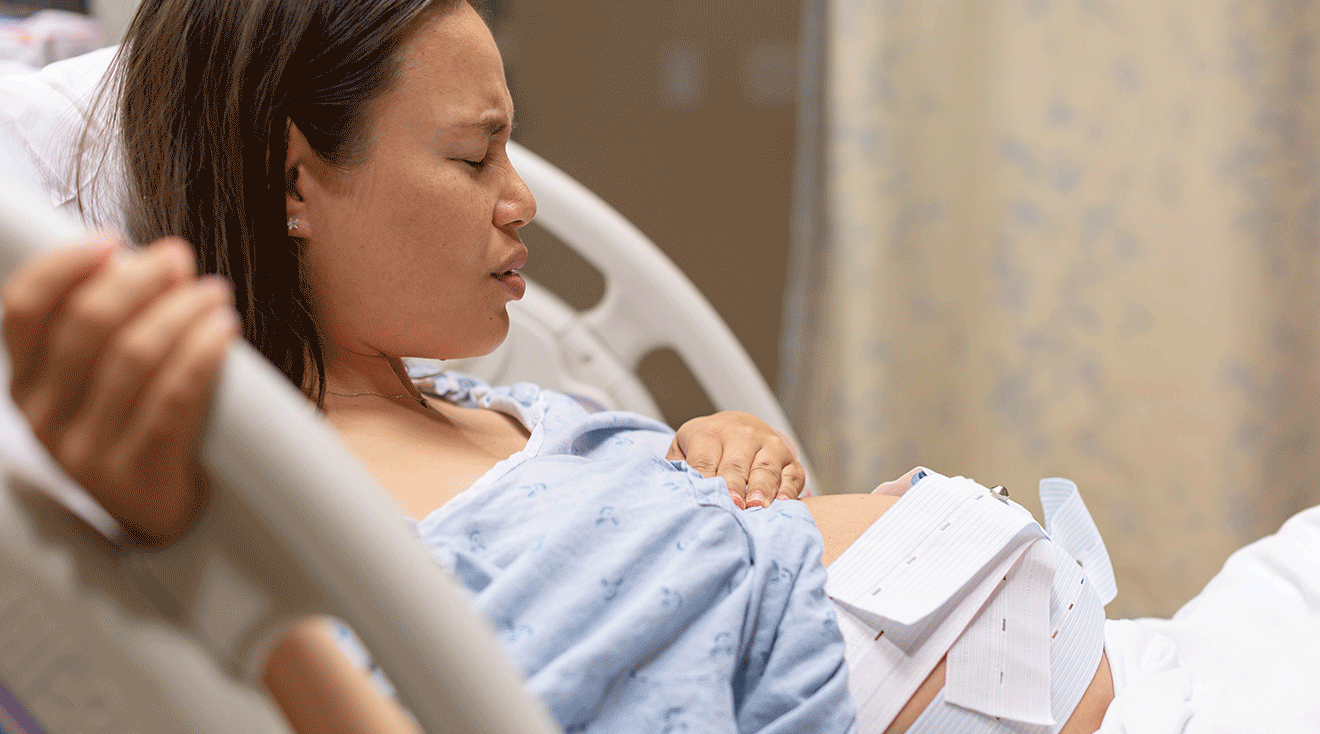Case Study: Susan Wong
Case Study: Susan Wong
Instructions: Read the following case study and answer the reflective questions. Please provide rationales for your answers. Make sure to provide citations/references for your answers in APA 7 format.
CASE STUDY: Active Labor: Susan Wong
Mrs. Wong, a first-time mother, is admitted to the birthing suite in early labor after spontaneous rupture of membranes at home. She is at 38 weeks of gestation with a history of abnormal alpha-fetoprotein levels at 16 weeks of pregnancy. She was scheduled for ultrasonography to visualize the fetus to rule out an open spinal defect or Down syndrome, but never followed through. Mrs. Wong and her husband disagreed about what to do (keep or terminate the pregnancy) if the ultrasonography indicated a spinal problem, so they felt they did not want this information.
Reflective Questions
- As the nurse, what priority data would you collect from this couple to help define relevant interventions to meet their needs?
- How can you help this couple if they experience a negative outcome in the birthing suite? What are your personal views on terminating or continuing a pregnancy with a risk of a potential anomaly? What factors may influence your views?
- With the influence of the recent Human Genome Project and the possibility of predicting open spinal defects earlier in pregnancy, how will maternity care change in the future?

Case Study: Active Labor – Susan Wong
Reflective Questions
1. As the nurse, what priority data would you collect from this couple to help define relevant interventions to meet their needs?
In this scenario, as a nurse, the first priority is to gather comprehensive obstetric history, including Mrs. Wong’s prenatal care, abnormal alpha-fetoprotein levels, and her decision to forgo the recommended ultrasound. Additionally, it is important to assess the psychosocial and emotional state of both Mrs. Wong and her husband regarding their decision not to undergo ultrasonography. Since they have different views about the pregnancy outcome, gathering data on how they have coped with this conflict is critical to ensure appropriate emotional support is provided. Moreover, collecting information on labor progression, fetal heart rate, and any signs of distress in the mother or fetus is essential to ensure safe delivery. Finally, it is necessary to identify cultural, spiritual, or religious beliefs that may influence their decisions or coping mechanisms, as this will help tailor the interventions.
2. How can you help this couple if they experience a negative outcome in the birthing suite? What are your personal views on terminating or continuing a pregnancy with a risk of a potential anomaly? What factors may influence your views?
If the couple experiences a negative outcome, offering compassionate emotional support is critical. Providing nonjudgmental listening and allowing them to express their emotions will help them navigate through grief. Referring the couple to bereavement services, pastoral care, or a mental health professional may provide additional support during this difficult time. Encouraging memory-making, such as taking photographs or creating keepsakes, may help them honor their child, which can be part of the healing process.
As a nurse, personal views on terminating or continuing a pregnancy should remain non-influential in clinical care. However, it is important to acknowledge that factors such as cultural, ethical, or religious beliefs may shape these views. Professional nursing standards prioritize patient autonomy, meaning the couple’s decision should be supported regardless of the nurse’s personal stance. Nurses must maintain professional boundaries, ensuring that personal opinions do not interfere with patient care.
3. With the influence of the recent Human Genome Project and the possibility of predicting open spinal defects earlier in pregnancy, how will maternity care change in the future?
The Human Genome Project has significantly advanced prenatal care, allowing for early detection of genetic abnormalities. In the future, maternity care will likely see more routine genetic screening, enabling earlier diagnosis of conditions like open spinal defects. This may lead to a rise in personalized care plans based on genetic profiles, giving expectant parents more information to make informed decisions about their pregnancies. Ethical considerations will play a critical role in guiding how this information is used, and healthcare providers will need to be well-versed in genetic counseling to help parents understand and navigate their options.
References
Pillitteri, A. (2018). Maternal & child health nursing: Care of the childbearing and childrearing family (8th ed.). Philadelphia: Lippincott Williams & Wilkins. https://lww.com
American College of Obstetricians and Gynecologists (ACOG). (2021). Alpha-Fetoprotein Screening. https://www.acog.org/en/womens-health/faqs/alpha-fetoprotein
National Human Genome Research Institute. (2023). The Human Genome Project. https://www.genome.gov/human-genome-project
Lachman, P. (2018). Understanding the ethical implications of the Human Genome Project. The Journal of Perinatal Education, 17(4), 20-29. https://jpe.org


